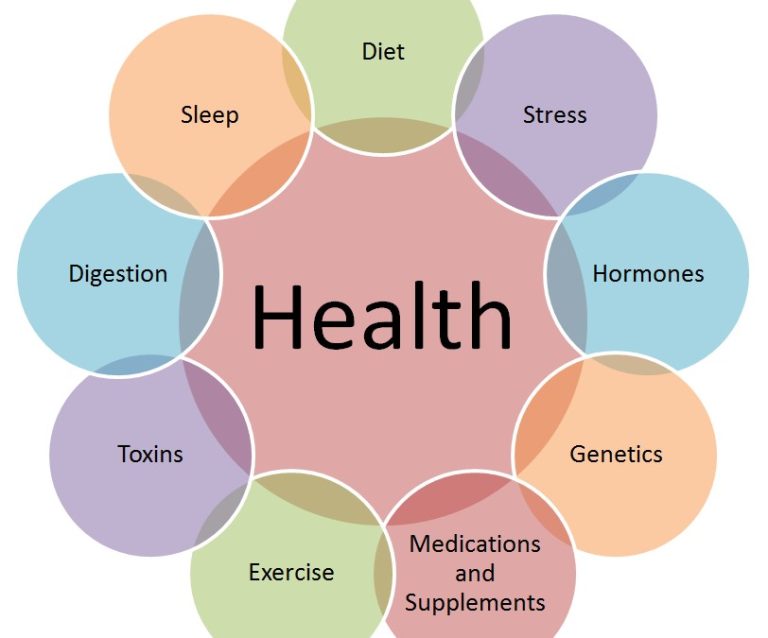Many people want to feel their very best. They seek more than just not being sick. They want true vitality. They want their bodies to work well. This is the idea behind function health. Function health is a way of looking at well-being. It focuses on how your body works. It aims to make your body work as well as possible. It is about optimizing your health. It looks at your whole body as one system. It asks why problems happen. It does not just treat symptoms. This guide explores function health. It explains its principles. It talks about its benefits. It helps you understand this important approach.

What Exactly is Function Health? Defining the Approach
Function health means having a body that functions optimally. It is linked to functional medicine. Functional medicine is a type of healthcare. It looks at the whole person. It considers all parts of your life. This includes your genes. It includes your lifestyle. It includes your environment. It also includes your history.
This approach is different. Standard medicine often focuses on diseases. Doctors find a disease name. Then they give a treatment for that disease name. This works very well for emergencies. It works well for acute problems. For example, if you break a bone, standard medicine is excellent. If you have a sudden infection, it is also excellent.
But chronic conditions are different. These are long-lasting problems. Many people have them. Examples are fatigue. Examples are digestive issues. Examples are autoimmune diseases. Standard medicine might treat the symptoms of these. Function health asks deeper questions. It asks why the body is not working right. It looks for the root cause. It seeks to restore normal body function. It is about helping your body heal itself. It uses a scientific approach. It looks at how all your body systems connect. It sees health as a dynamic state. It is not just the absence of disease. It is about being truly well.
Key Principles of Function Health
Function health follows several important ideas. These ideas guide the approach.
- Patient-Centered Care: This means the focus is on you. You are unique. Your health story is unique. Your genes are unique. Your life is unique. Care plans are made just for you. They are not one-size-fits-all.
- Integrative and Science-Based: This approach uses science. It looks at research. It combines different types of therapies. This might include diet changes. It might include lifestyle changes. It might include supplements. It works with standard medical treatments. It does not always replace them.
- Searching for Root Causes: This is a major principle. Why is someone tired? Is it thyroid? Is it gut issues? Is it stress? Is it a past infection? Function health aims to find the why. It doesn’t just treat the tiredness symptom. It tries to fix the underlying problem.
- Viewing the Body as Interconnected Systems: The body is complex. All its parts work together. Your gut health affects your brain health. Your stress affects your hormones. Your immune system affects your skin. Function health understands these links. It treats the body as one big network.
- Health as Positive Vitality: It is more than just not being sick. It is about feeling good. It is about having energy. It is about mental clarity. It is about resilience. It aims for a high level of well-being. This is true function health.
- Emphasis on Lifestyle Factors: Your daily habits matter greatly. Diet is crucial. Sleep is vital. Exercise is important. Managing stress is key. Your environment plays a role. These factors heavily impact your body’s function. This approach focuses on optimizing these areas first.
How Function Health Differs from Conventional Medicine
Understanding the differences helps. Function health looks at the person differently.

- Focus: Function health seeks root causes. Conventional medicine often manages symptoms of a diagnosed disease.
- Approach: Function health uses a holistic view. It sees the body as interconnected systems. Conventional medicine often focuses on specific organs or disease types.
- Treatment: Function health uses personalized plans. These often start with lifestyle changes. They may add targeted supplements. Conventional medicine often relies on prescription medications or surgery.
- Diagnostic Tools: Both use standard blood tests. Function health often uses more specialized tests too. These might look at gut bacteria. They might check for nutrient levels. They might test for toxins.
- Appointment Length: Visits in function health can be longer. The first visit might be very long. This is to gather a lot of information. This includes a detailed history.
Both approaches are valuable. They can work together. Function health is often very helpful for chronic problems. Conventional medicine is life-saving for acute and emergency issues.
The Role of Personalized Care in Function Health
People are different. Their health needs are different. What helps one person might not help another. This is why personalized care is central. Function health knows this. It looks at your unique story. It considers your genetic makeup. It looks at your past health events. It analyzes your current lifestyle.
Based on all this information, a specific plan is made. This plan is just for you. It targets your unique imbalances. It supports your body’s specific needs. This personalized approach is key. It aims to restore your specific body function effectively.
Investigating Root Causes in Function Health
Finding the root cause is like detective work. Function health practitioners look deep. They consider many potential underlying issues.
Examples of root causes they investigate include:
- Chronic inflammation: Low-level inflammation can cause many problems.
- Gut dysfunction: Problems with digestion or gut bacteria affect the whole body.
- Hormonal imbalances: Imbalances in hormones impact energy, mood, and more.
- Nutrient deficiencies: Not enough vitamins or minerals affects body processes.
- Toxins: Exposure to environmental toxins can harm function.
- Chronic stress: Long-term stress affects almost every system.
- Infections: Past or hidden infections can weaken the body.
Practitioners use detailed questionnaires. They use lab tests. These tests help uncover these hidden issues. Then the plan targets these specific findings. This helps fix the problem at its source. This supports overall function health.
Benefits of Adopting a Function Health Approach
Taking a function health path can lead to many benefits. People often report feeling much better overall.
Benefits can include:
- More energy: Addressing root causes of fatigue helps.
- Better digestion: Fixing gut issues improves comfort and nutrient uptake.
- Clearer thinking: Reducing inflammation and supporting brain health helps focus.
- Less inflammation: Finding and removing inflammatory triggers reduces pain and improves health markers.
- Balanced hormones: Addressing hormone imbalances improves mood and physical symptoms.
- Stronger immune system: Supporting gut health and reducing stress boosts immunity.
- Improved overall well-being: Feeling balanced in body and mind.
- Preventing future illness: Being proactive helps avoid problems later.
- Weight management: Addressing metabolic and hormonal factors can support healthy weight.
These benefits come from helping the body work as it should. They come from restoring normal function.
Conditions Often Addressed by Function Health
Many chronic conditions respond well to this approach. Function health can help manage complex, long-term issues.

Common conditions include:
- Constant tiredness or chronic fatigue syndrome.
- Irritable bowel syndrome (IBS) and other digestive problems.
- Autoimmune diseases (like Hashimoto’s, rheumatoid arthritis).
- Skin issues (eczema, psoriasis).
- Migraine headaches.
- Hormonal issues (PCOS, thyroid problems).
- Anxiety and depression (often alongside mental health support).
- Metabolic syndrome and difficulty with blood sugar control.
- Fibromyalgia.
- Food sensitivities and allergies.
It is important to remember this. Function health often works with standard medical care. It is not a replacement for emergencies. It complements care for chronic problems.
Lifestyle Pillars of Function Health
Lifestyle is foundational in function health. Changes in daily habits are powerful. Key pillars include:
- Nutrition: Eating whole, nutrient-dense foods. This is often personalized. Some people need specific diets. It focuses on foods that support healing and reduce inflammation.
- Stress Management: Chronic stress harms the body. Techniques like mindfulness, meditation, or yoga are used. Finding ways to relax is crucial.
- Sleep: Good sleep is vital for repair. Optimizing sleep habits is a key step. Aiming for enough quality sleep helps restore function.
- Exercise and Movement: Regular physical activity supports all body systems. Finding enjoyable ways to move is important.
- Environmental Exposure: Reducing exposure to toxins matters. This includes chemicals in food, water, air, and products.
- Mind-Body Connection: Recognizing how thoughts and emotions affect physical health. Practices that support mental and emotional well-being are included.
- Relationships and Community: Social connection is important for overall health and resilience.
Focusing on these pillars supports the body’s natural ability to function well.
Finding a Function Health Practitioner
If you are interested in function health, finding a qualified practitioner is key. These practitioners come from various backgrounds. They may be medical doctors (MD). They may be doctors of osteopathy (DO). They may be naturopathic doctors (ND). Physician assistants (PA), nurse practitioners (NP), and registered dietitians (RD) can also specialize.
Look for practitioners with specific training. Organizations offer certifications in functional medicine or integrative health. Check their credentials. Read reviews. Find someone you feel comfortable with. They will be your partner in this health journey.
Function Health is a Partnership
This approach is different. It requires you to be active. You are a partner in your care. The practitioner guides you. But you implement the changes. This means being committed to lifestyle changes. It means making new habits. It requires patience. Restoring function health takes time. It is not a quick fix. It is a journey towards lasting wellness. Your effort is essential for success.
To summarize, function health is a powerful approach. It focuses on optimizing how your body works. It looks for the root causes of health problems. It does not just treat symptoms. It sees the body as connected systems. It emphasizes personalized care. It considers your unique story. Lifestyle factors are very important in this approach. Things like diet, stress, sleep, and exercise play a huge role.
Adopting a function health perspective can lead to many benefits. These include more energy, better digestion, and overall enhanced well-being. It is especially helpful for managing chronic conditions. It works by restoring your body’s natural function.
While function health is comprehensive, it complements conventional medicine. It is not a replacement for urgent care. If you are dealing with persistent health issues or simply want to optimize your well-being, discussing function health with a qualified healthcare provider could be a valuable step. Take an active role in your health journey to achieve optimal function health.






